 In today's global landscape, polarization is more pronounced than ever, cutting across political, social, and cultural lines. Deep ideological divides are not only shaping public debates but are also increasingly influencing personal relationships and community interactions. The rise of digital media has further amplified echo chambers, allowing misinformation to spread quickly and entrenching opposing viewpoints. As the world grapples with complex issues, the need for dialogue and understanding is critical.
In today's global landscape, polarization is more pronounced than ever, cutting across political, social, and cultural lines. Deep ideological divides are not only shaping public debates but are also increasingly influencing personal relationships and community interactions. The rise of digital media has further amplified echo chambers, allowing misinformation to spread quickly and entrenching opposing viewpoints. As the world grapples with complex issues, the need for dialogue and understanding is critical.
This yearlong series of events examined the dangers of polarization and how deep-seated divisions ripple through our lives, affecting everything from our relationships with others to our mental health and well-being. By understanding the broad and nuanced impacts of these divisions, we aimed to identify strategies to address them and to affect a shift toward a society marked not by hostility, intolerance, and isolation but by humanity, understanding, and belonging.
Strategic Global Challenges and Opportunities in 2025 and Beyond:The 2025 Adda Bozeman Lecture
Wednesday, April 2, 2025
The current moment in global affairs above all seems to be one of challenges and uncertainty, compounded by the U.S. administration’s radical repositioning on development aid, diversity, global conflicts, and climate change. Drawing on her experience as a former diplomat at the United Nations and as a key member of the team that negotiated the Iran nuclear agreement, Ambassador Brooke Anderson ’86 provided perspective on the effects of the new U.S. policies on global priorities and challenges and where there might be opportunities to engage in new ways.
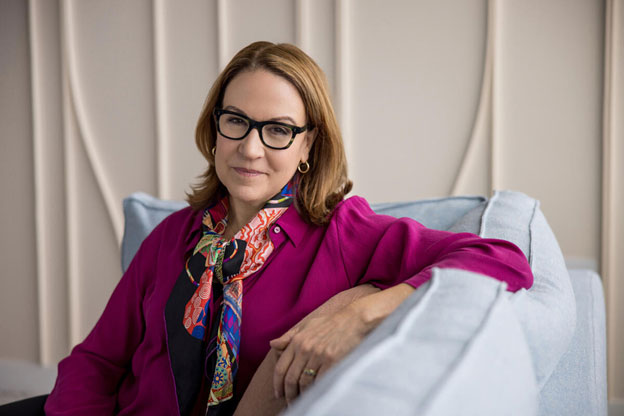 Brooke D. Anderson is an experienced leader and an accomplished diplomat, negotiator, and strategist. In her various roles, she has navigated high-stakes challenges, carried out sensitive diplomatic missions, and achieved results on the most complex global and national issues. Brooke is currently President of Pivotal Ventures, an investment and incubation company founded by Melinda French Gates dedicated to advancing social progress and expanding women’s power and influence in the United States and around the world.
Brooke D. Anderson is an experienced leader and an accomplished diplomat, negotiator, and strategist. In her various roles, she has navigated high-stakes challenges, carried out sensitive diplomatic missions, and achieved results on the most complex global and national issues. Brooke is currently President of Pivotal Ventures, an investment and incubation company founded by Melinda French Gates dedicated to advancing social progress and expanding women’s power and influence in the United States and around the world.
The Power of Norms? International Criminal Law and Human Rights Law in Times of International Crises
International Human Rights Lawyer Oliver Windridge in Conversation with Sarah Lawrence Faculty Philipp Nielsen
Monday, February 24, 2025
If the pope has no army, the same is true for judges in general and for international judges even more so. International law relies on the willingness of those subject to its norms to abide by them, or, if need be, enforce them. But what is the power of these norms in times of international crises? While the International Criminal Court (ICC) seems more active than ever, and its actions receive constant coverage, the ICC caseload reflects frequent violations of international law. At the same time, accusations of overreach and the politicization of international criminal law are directed at the court and its supporters.
Oliver Windridge is the founder of rights: applied, an international consultancy practice that specializes in multi-track accountability solutions. Oliver has spent more than seven years as a legal officer at the United Nations, working in the trial and appeals chambers at the International Criminal Tribunal for Rwanda and the International Criminal Tribunal for the former Yugoslavia. He has appeared in cases before several international and regional courts and bodies including the International Criminal Court, African Court on Human and Peoples’ Rights, UN Human Rights Committee, and UN Working Group on Arbitrary Detention. In conversation with history faculty Philipp Nielsen and with the audience, Oliver will explore the state of international criminal law and human rights law today.
A Conversation with Dr. Francis Collins
Thursday, January 30, 2025
In a thought-provoking conversation with Provost Kanwal Singh, Dr. Francis Collins explored themes such as scientific innovation, public health initiatives, and the challenges of polarization in today's society.
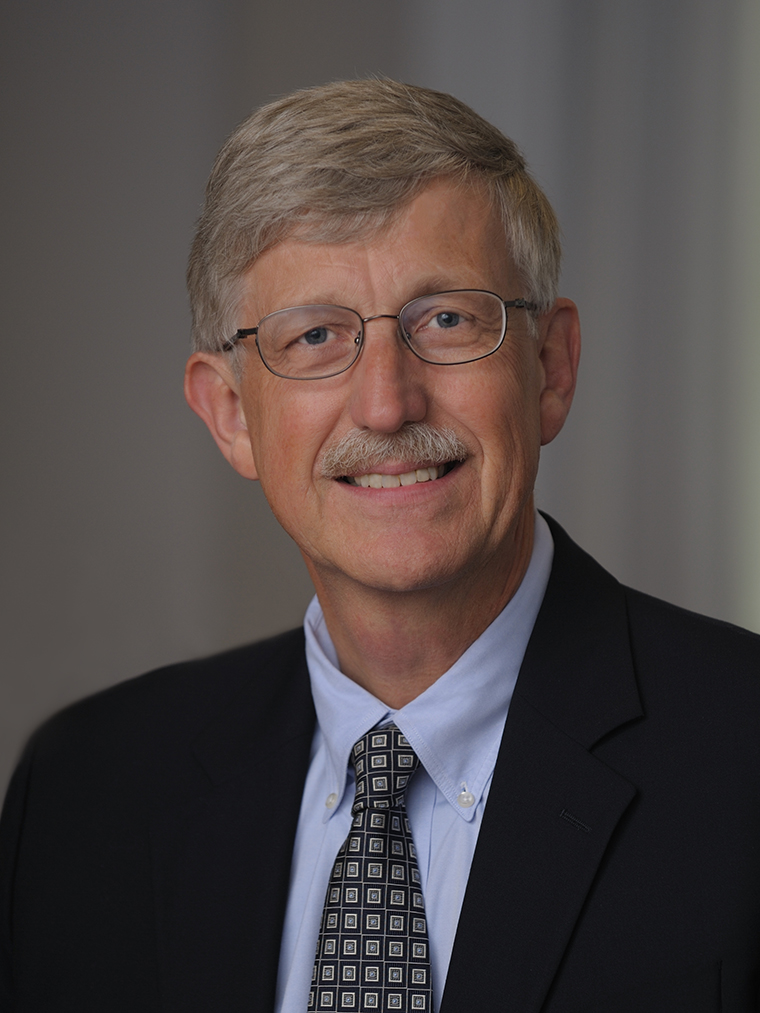 Francis Collins is a physician-scientist. Under his direction, the Human Genome Project produced the first finished sequence of the human DNA instruction book in 2003. From 2009 to 2021, Collins served under three presidents as the Director of the U.S. National Institutes of Health, the largest supporter of biomedical research in the world. Following a year in the White House as the President’s Acting Science Advisor, he oversees a research laboratory as a Distinguished Investigator in the intramural program of the National Human Genome Research Institute. He also leads a bold administration initiative to eliminate hepatitis C in the United States. His contributions to science, medicine, and society have been recognized by the Presidential Medal of Freedom, the National Medal of Science, and the Templeton Prize.
Francis Collins is a physician-scientist. Under his direction, the Human Genome Project produced the first finished sequence of the human DNA instruction book in 2003. From 2009 to 2021, Collins served under three presidents as the Director of the U.S. National Institutes of Health, the largest supporter of biomedical research in the world. Following a year in the White House as the President’s Acting Science Advisor, he oversees a research laboratory as a Distinguished Investigator in the intramural program of the National Human Genome Research Institute. He also leads a bold administration initiative to eliminate hepatitis C in the United States. His contributions to science, medicine, and society have been recognized by the Presidential Medal of Freedom, the National Medal of Science, and the Templeton Prize.
Misinformation: A Panel Discussion
Tuesday, October 29, 2024
We live in a time of echo chambers and information silos, and misinformation can seem commonplace. How did we get here? And how do we navigate this landscape as we look for reliable information?
The Sarah Lawrence community gathered for a panel discussion on misinformation and the current media landscape. The event was moderated by Writing faculty member Marek Fuchs and featured David Peritz, Politics faculty, Jeffrey Rothfeder, journalist and author, and Zeve Sanderson, founding director of NYU’s Center for Social Media and Politics.
In Conversation: Jon Grinspan ’06 and President Cristle Collins Judd
Thursday, October 24, 2024
A discussion between Jon Grinspan ’06 and President Cristle Collins Judd at a critical pre-election moment to explore lessons from our nation’s history that resonate in today’s fractured political landscape.
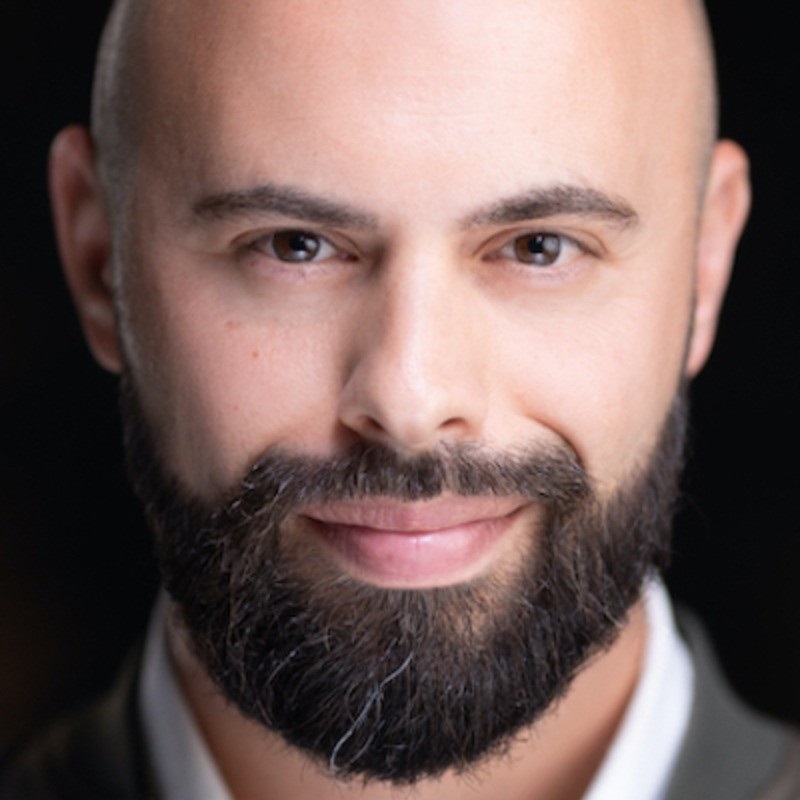 Jon Grinspan, PhD, is a curator of political and military history at the Smithsonian National Museum of American History and a frequent contributor to The New York Times. His work focuses on the deep history of American democracy and its relevance to contemporary politics. From political conventions to protests and riots, Grinspan’s research takes him to the heart of America’s political struggles, where he gathers materials to help future generations understand 21st-century democracy.
Jon Grinspan, PhD, is a curator of political and military history at the Smithsonian National Museum of American History and a frequent contributor to The New York Times. His work focuses on the deep history of American democracy and its relevance to contemporary politics. From political conventions to protests and riots, Grinspan’s research takes him to the heart of America’s political struggles, where he gathers materials to help future generations understand 21st-century democracy.
He is the award-winning author of three books: Wide Awake: The Forgotten Force That Elected Lincoln and Spurred the Civil War, an account of the anti-slavery youth movement that propelled America from the 1860 election to civil war; Age of Acrimony: How Americans Fought to Fix Their Democracy, 1865-1915, which explores the post-Civil War fight to reform America’s political system; and The Virgin Vote: How Young Americans Made Democracy Social, Politics Personal, and Voting Popular in the Nineteenth Century, a study of how struggling young citizens found identity and maturity in democracy.
White Dudes for Harris, Women for Trump: Political Media and the 2024 Election
The Gender and Women’s History Collective
Wednesday, October 9, 2024
When Vice President Kamala Harris suddenly became the Democratic nominee in mid-July 2024, both parties faced an unprecedented campaign landscape and were forced to transform their media strategies in a matter of days. For the Democrats, it meant putting together a campaign tailored not to an establishment candidate but to a vibrant, biracial woman of color whose presidential bid had failed in 2020. Conversely, the Trump campaign not only had to respond to a completely different candidate, but also to an upsurge of hope and energy from Democratic organizers, voters, and donors excited by a candidate that, just four years ago, they had passed over. By contrast to this unprecedented historical development, the political media that we will all be enmeshed in as we count the days to November 5 is not unprecedented. How do professionals rely on decades of media innovation to take advantage of swift changes, errors, and unexpected challenges in campaigns? How do they work to change a narrative that isn't working? And how, in the 21st century, can voters feel like participants in the electoral process and not just an audience for slick, partisan messaging?
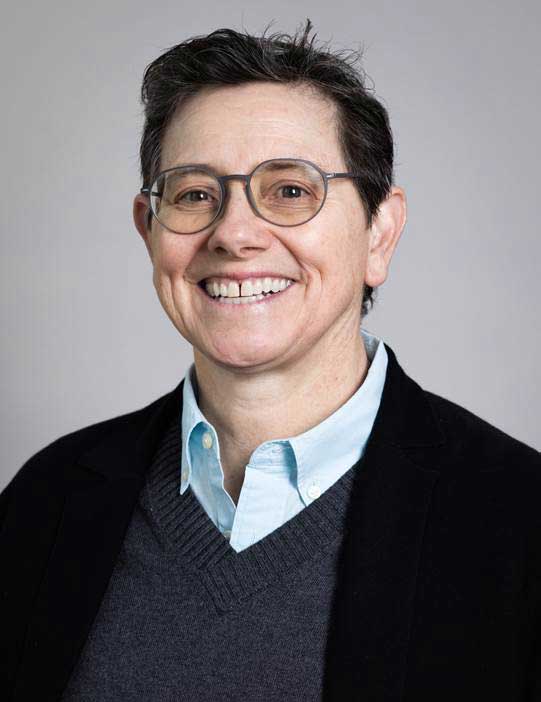 Claire Potter is a Professor of History emeritus at The New School for Social Research in New York City. The author of two books and two edited collections, she writes the Political Junkie Substack and produces its affiliated book podcast, “Why Now?” Potter has also written for The New York Times, The Washington Post, The Chronicle of Higher Education, The Guardian, Politico, Yale Review, AlterNet, Dissent, Eurozine, DAME, and The New Republic. Her most recent book is Political Junkies: From Talk Radio to Twitter, How Alternative Media Hooked Us on Politics and Broke Our Democracy (Basic Books, 2020), listed by the New York Public Library as an “Essential Read” for the 2020 election. She is currently writing a biography of journalist and radical feminist activist Susan Brownmiller.
Claire Potter is a Professor of History emeritus at The New School for Social Research in New York City. The author of two books and two edited collections, she writes the Political Junkie Substack and produces its affiliated book podcast, “Why Now?” Potter has also written for The New York Times, The Washington Post, The Chronicle of Higher Education, The Guardian, Politico, Yale Review, AlterNet, Dissent, Eurozine, DAME, and The New Republic. Her most recent book is Political Junkies: From Talk Radio to Twitter, How Alternative Media Hooked Us on Politics and Broke Our Democracy (Basic Books, 2020), listed by the New York Public Library as an “Essential Read” for the 2020 election. She is currently writing a biography of journalist and radical feminist activist Susan Brownmiller.
In Conversation: Dr. Eddie Glaude, Jr. and President Cristle Collins Judd
Thursday, September 5, 2024
The inaugural event in the Polarization series featured a conversation between prominent scholar Eddie Glaude, Jr. and Sarah Lawrence president Cristle Collins Judd.
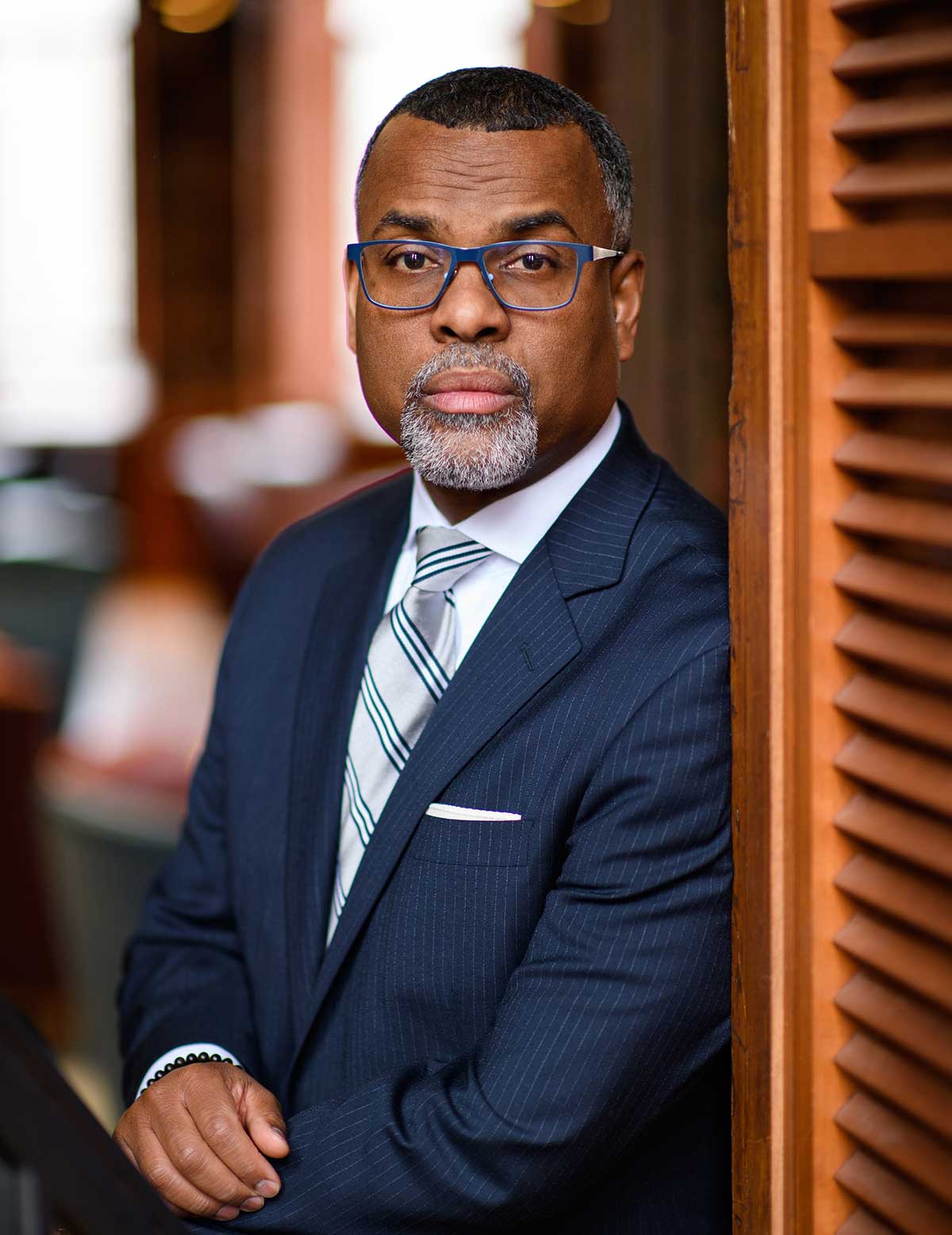 Dr. Eddie S. Glaude, Jr. is an author, political commentator, public intellectual, and passionate educator who examines the complex dynamics of the American experience. His writings, including Democracy in Black: How Race Still Enslaves the American Soul, In a Shade of Blue: Pragmatism and the Politics of Black America, his New York Times bestseller, Begin Again: James Baldwin’s America and Its Urgent Lessons for our Own, and his latest, We Are the Leaders We Have Been Looking For, take a wide look at Black communities, the difficulties of race in the United States, and the challenges we face as a democracy.
Dr. Eddie S. Glaude, Jr. is an author, political commentator, public intellectual, and passionate educator who examines the complex dynamics of the American experience. His writings, including Democracy in Black: How Race Still Enslaves the American Soul, In a Shade of Blue: Pragmatism and the Politics of Black America, his New York Times bestseller, Begin Again: James Baldwin’s America and Its Urgent Lessons for our Own, and his latest, We Are the Leaders We Have Been Looking For, take a wide look at Black communities, the difficulties of race in the United States, and the challenges we face as a democracy.
Glaude is the James S. McDonnell Distinguished University Professor and the former Chair of the Department of African American Studies at Princeton University from 2009 to 2023. He is also on the Morehouse College Board of Trustees. He frequently appears in the media, as a columnist for TIME Magazine and as an MSNBC contributor on programs like Morning Joe and Deadline Whitehouse with Nicolle Wallace. In his writing and speaking, Dr. Glaude is an American critic in the tradition of James Baldwin and Ralph Waldo Emerson, confronting history and bringing our nation’s complexities, vulnerabilities, and hope into full view.
Explore Previous Years' Event Series
The Polarization series' consideration of a theme from a variety of perspectives builds on the work of previous academic year event series: Being Human (2023-24), History Matters (2022-23), Belonging (2021-22), Justice (2020-21), E Pluribus Unum (2019-20), Difference in Dialogue (2018-19), and Democracy and Education (2017-18), which serves as an overarching umbrella for this work.